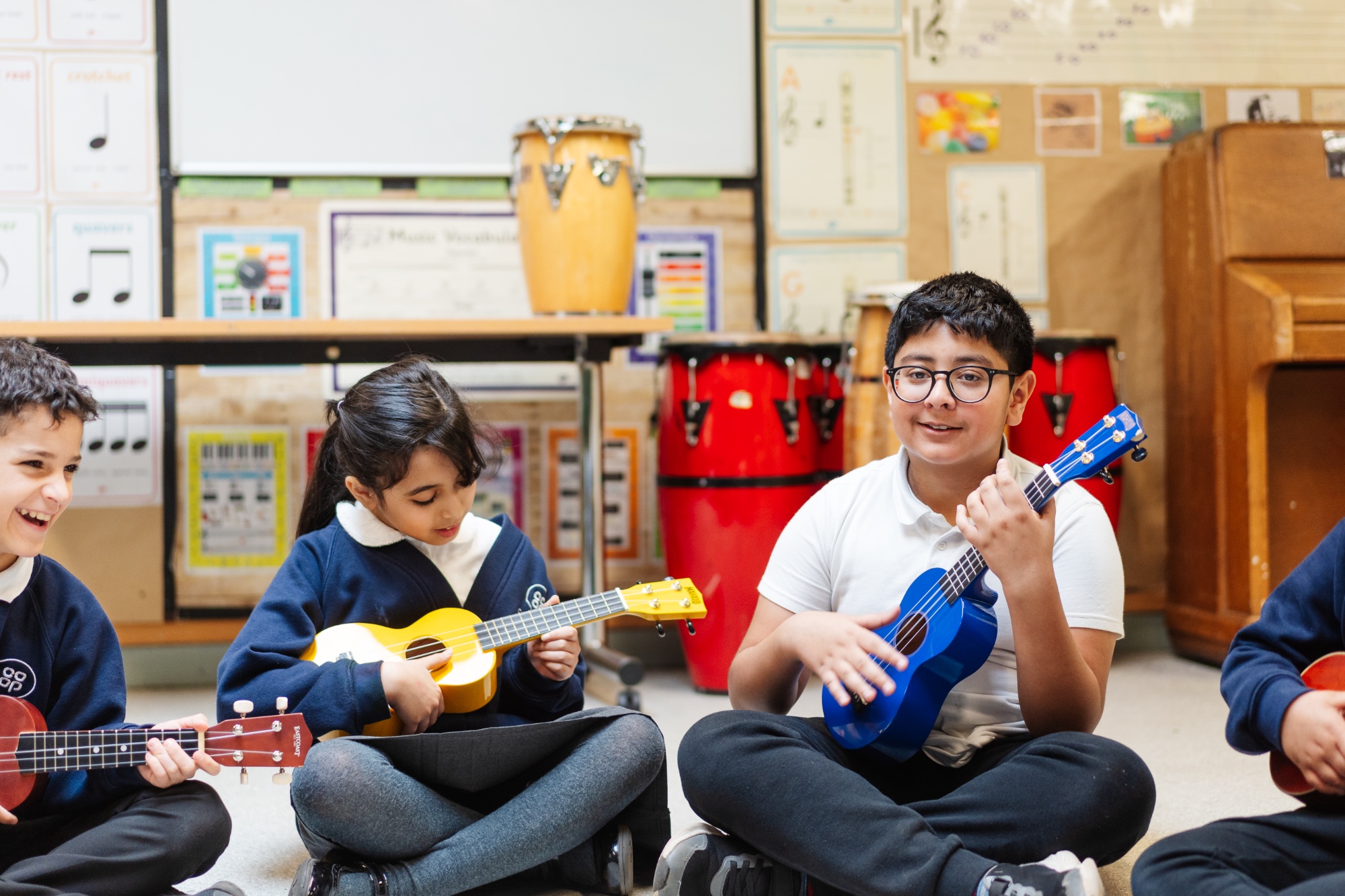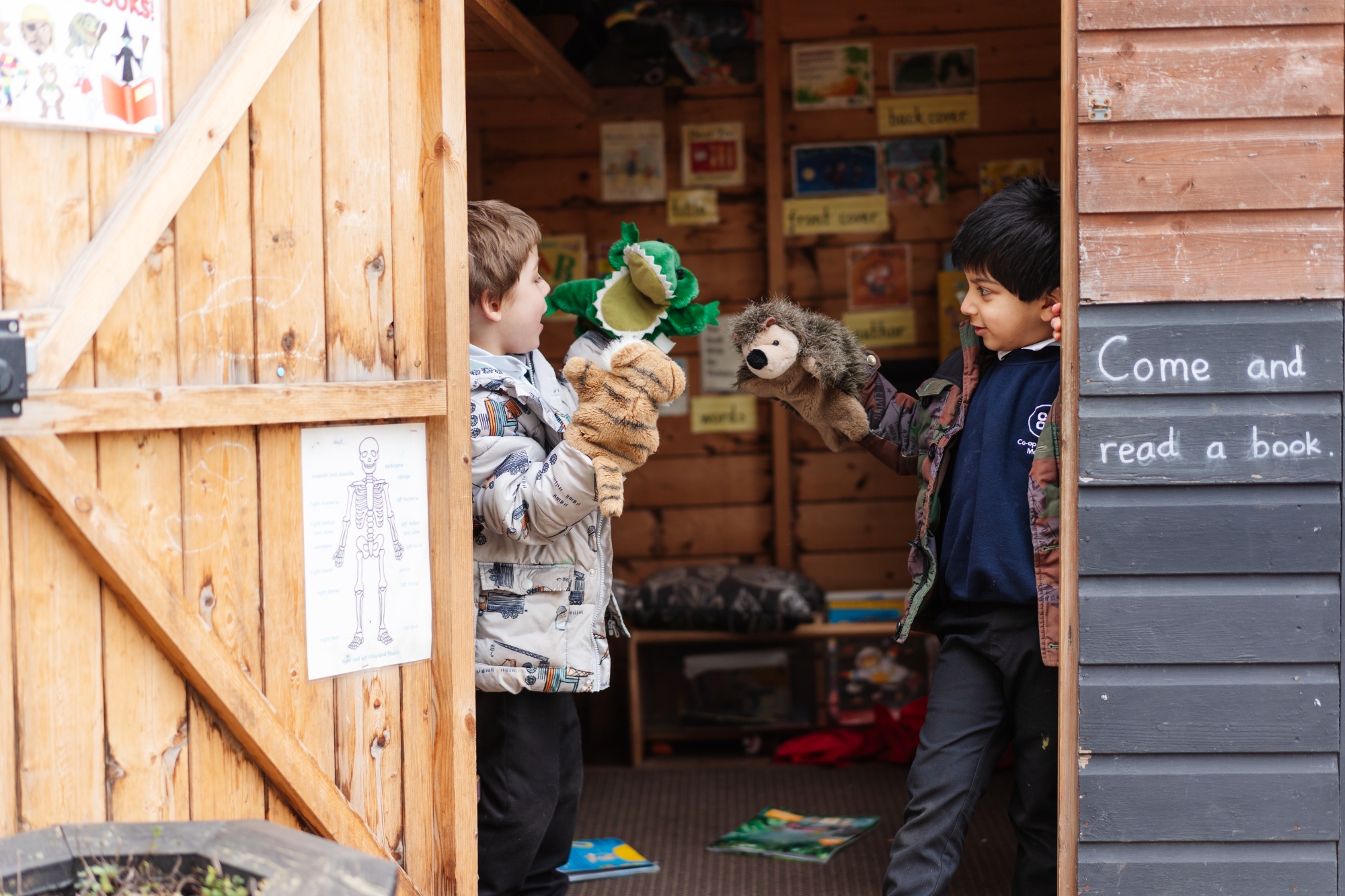Our Curriculum Aims and Intent
Our Curriculum
Curriculum Aims:

To foster a love of reading in all pupils and enable pupils to read widely for both pleasure and the acquisition of new knowledge.
To develop the voice of the child and their ability to communicate, ask questions and think critically.
To enable pupils to challenge preconceptions about the world they live in and use empathy and kindness to speak up for what is right.
To enable pupils to see themselves in the curriculum and be ‘funds of knowledge’ for others.
To inspire and motivate children to be creative thinkers and problem solvers in order to be lifelong learners
Intent
At Co-op Academy Medlock, our curriculum is carefully designed to recognise and celebrate the community we serve which has roots across the globe. It provides meaningful and ambitious learning experiences that enable our children to be able to actively engage with the world around them in order for them to make positive contributions later in life.
Our curriculum is underpinned by the coverage set out within the National Curriculum (Years 1 -6) and Foundation Stage Early Years Curriculum (Nursery and Reception). It has high expectations of all pupils and encourages them to be curious, thoughtful, active and resilient learners. It demands that children and adults love learning so they can make connections, ask questions and think critically about the world they live in.
Our curriculum ensures that every meaningful learning experience the children encounter is a stepping stone for the next stage in their education and beyond in to the future world of work. We encourage our children to find their voices; whatever form that may take, providing opportunities for self expression. It promotes the use of language and communication through all mediums: spoken language, the written word and information technology platforms.
At its heart it ensures pupils challenge preconceptions about the world they live in using empathy and kindness to speak up for what is right and find their own path.
Implementation

We believe that *substantive and **disciplinary knowledge are both vital to building understanding and so we ensure that our curriculum is knowledge engaged. Some subjects, such as Art, DT, PE and music place a greater emphasis on the development of disciplinary knowledge but are enriched by the substantive knowledge of people and events and work of significance. In other subjects, such as science, children learn these alongside each other and are explicitly developed. New knowledge is taught first and then is enhanced by the development of disciplinary knowledge.
Our Curriculum is deliberately constructed to ensure that it is progressive; sequenced in such a way that it builds: within a lesson, from lesson to lesson and from year to year. Opportunities are explicitly planned for children to revisit and develop concepts and knowledge in subsequent topics and years. Where possible at Co-op Academy Medlock, links are also made between and across subjects where they naturally occur. We believe that this approach is especially important to enable learning to stick and supports pupils in ensuring that learning becomes embedded in the long-term memory.
Within subjects, core strands have been identified and these are revisited, meaning children have opportunities to make links and demonstrate their understanding of these concepts year on year. For example, in history, children will encounter the idea of settlement within different historical time periods. This is supported by ensuring that each year, the disciplinary knowledge that children are taught or use becomes progressively more challenging so that they have the tools to best demonstrate and apply the knowledge that they have acquired over time.
There is an expectation that those delivering our curriculum have a secure understanding of what the children have already learnt and where their piece of the puzzle fits. To support this, teachers have opportunities to plan within teams, across year groups and phases, as well as with subject specialists, senior leaders and Trust curriculum directors.
Rigorous implementation is possible because we prioritise the development of subject expertise with regular opportunities for our staff to undertake professional development, regardless of the stage of their career. This is to both improve and enhance their subject knowledge and to raise standards of teaching and learning in the wider curriculum.
Good teaching and learning is achieved through implementation of our Inspiring Teaching Principles which is an evidence-informed approach and underpinned by the work of Rosenshine and Fiorella and Mayer. Therefore, teaching in the curriculum should include:
-
Opportunities which build on pupils’ knowledge and understanding.
-
Being clear about what the pupils learn and ways the pupils can demonstrate this
-
Presenting information in small steps
-
Asking high quality questioning and dialogic teaching to assess what the pupils know and understand.
-
Teacher and peer modelling of concepts, knowledge and application of learning.
-
Guided and independent learning opportunities
-
Explicit teaching of subject specific tier 3 and appropriate tier 2 vocabulary.
-
Regular opportunities to practise key concepts, skills and knowledge.
-
Appropriate challenge for all learners, including adaptations where necessary.
-
Opportunities to meaningfully apply literacy and numeracy skills.
All pupils at Medlock study the full curriculum; it is not narrowed for anybody. We have the same high ambition for all our pupils and so make appropriate adjustments, scaffolding learning so that it is as demanding as possible for all pupils, particularly those with SEND. Where additional and specific interventions are necessary, we rotate them so that the same subjects are not missed regularly by the same pupils.
Retrieval practice is prioritised in order for children to revisit and activate their prior knowledge before they encounter new learning. All lessons begin with direct teaching of vocabulary in context in order for our children to close the vocabulary gap and ensure they have the best chance to become true experts in a range of subject areas.
When a series of lessons is planned, we consider how best to engage and inspire in order to encourage our children. This could include: using a range of stimuli as a hook to start off a unit of work or to take learning in a different direction, such as maps, artefacts or other forms of data. Our ‘Text Led’ curriculum in English also offers our pupils opportunities to encounter a range of quality texts chosen specifically to link to the wider curriculum. This schematic approach is adopted across the curriculum. For example, in our ‘paintings curriculum’ which offers opportunities to examine a range of artworks as starting points beyond an art lesson.
Our curriculum provides a range of experiences which enable children to make sense of what they have been taught and to understand that learning can take place beyond the classroom. This means that there are planned opportunities for our children to visit the various cultural institutions on their doorsteps at least once a year, as well as visiting places outside the local area, which enhances learning in other themes. They are planned in such a way that the experiences build upon previous visits. These visits and cultural experiences are planned in such a way that the experiences build upon previous opportunities. They are seen as vital and central to our curriculum offer, rather than additional due to the community that we serve.
Due to our urban locality, we also structure opportunities for learning to take place within our own Forest School and community garden areas with a particular focus on science.
Impact
The core knowledge for each topic is identified and prioritised for retrieval practice at the start of lessons. Any gaps in knowledge and understanding are addressed during the lesson sequence and then revisited again both straight after a topic and then at the beginning of a new topic or year. This approach to retrieval gives the opportunity to activate prior learning and gives opportunities to address misconceptions.
Through regular low stakes assessment, our children demonstrate their understanding of what they have been taught and are given the chance to apply it in different ways. These take the form of exit questions, Google quizzes and retrieval practical tasks. Much of this is done through talk. In key stage 2 our children write an essay which demonstrates what they have remembered at the end of a unit and celebrates the learning.
This work is then used by subject leaders and teachers as part of our monitoring cycle to make adjustments to any curriculum planning in order for the children to continue to make progress and access a broad and balanced curriculum. It also gives us a comprehensive understanding of the quality of education at Co-op Academy Medlock. This then informs further school improvement work that is to be carried out.

*Substantive Knowledge: established facts, e.g. the earth is the planet on which we live.
**Disciplinary Knowledge: the methods that establish the substantive facts, e.g. observation of the sun, moon and stars, satellite photographs
